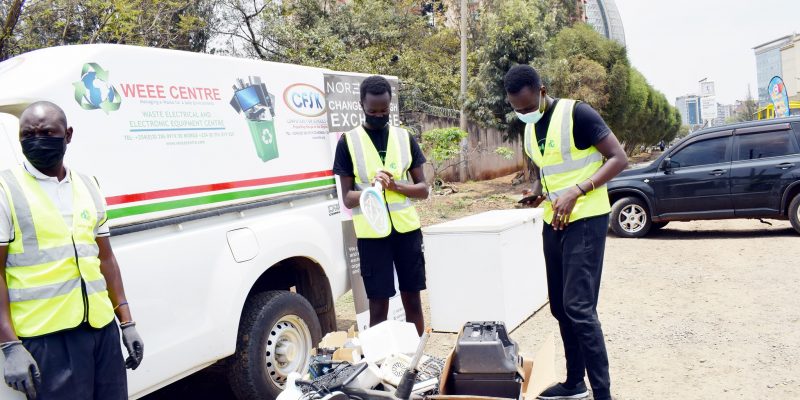The Kenya Catalytic Jobs Fund (KCJF) confirms an investment of more than $133,000 in the Waste Electrical and Electronic Equipment (WEEE) Center. The company, based in Kenya's capital, Nairobi, is one of five winners in a competition organized by the UK Foreign, Commonwealth & Development Office. WEEE will use the funding to expand its activities in the e-waste sector, creating job opportunities.
The Waste Electrical and Electronic Equipment Centre (WEEE) is receiving over $133,000 in funding. The funds are provided by the Kenya Catalytic Jobs Fund (KCJF), following a competition organized by the UK Foreign, Commonwealth & Development Office on innovation in the e-waste sector.
Read Also –
The project championed by WEEE aims to reduce e-waste pollution of soil and waterways in Kenya. In a report published in 2020, the Kenyan Ministry of Environment and Forestry recalls that in 2010, e-waste generated in the country already reached 11,000 metric tons per year. The generation of e-waste has increased over the years. With KCJF funding, WEEE, based in the Kenyan capital Nairobi, expects to create about 2,087 jobs, including 87 direct jobs in the formal sector and 2,000 indirect jobs.
Toward sustainable e-waste management
To achieve this goal, six collection centers for e-waste (computers, kettles, chargers, refrigerators, batteries, etc.) will be created across Kenya, as well as 30 collection points. These facilities will be managed by Kenyan youth.
Read Also – AFRICA: the circular economy at the heart of ecosystem preservation
The KCJF funding comes at a time when WEEE is rolling out an awareness campaign in partnership with Taka Ni Mali on source separation and responsible disposal of e-waste in Kenya. This awareness campaign is being carried out in Kajiado County, in the southwest of the country. A total of 450 people, divided into 15 groups, were deployed in Kajiado. WEEE plans to sell the secondary raw materials from the recycling to industrial players.
Inès Magoum







